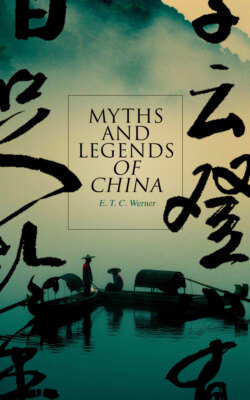Читать книгу Myths and Legends of China - E. T. C. Werner - Страница 17
На сайте Литреса книга снята с продажи.
Parents and Children
ОглавлениеAs was the power of the husband over the wife, so was that of the father over his children. Infanticide (due chiefly to poverty, and varying with it) was frequent, especially in the case of female children, who were but slightly esteemed; the practice prevailing extensively in three or four provinces, less extensively in others, and being practically absent in a large number. Beyond the fact that some penalties were enacted against it by the Emperor Ch'ien Lung (A.D. 1736–96), and that by statute it was a capital offence to murder children in order to use parts of their bodies for medicine, it was not legally prohibited. When the abuse became too scandalous in any district proclamations condemning it would be issued by the local officials. A man might, by purchase and contract, adopt a person as son, daughter, or grandchild, such person acquiring thereby all the rights of a son or daughter. Descent, both of real and personal property, was to all the sons of wives and concubines as joint heirs, irrespective of seniority. Bastards received half shares. Estates were not divisible by the children during the lifetime of their parents or grandparents.
The head of the family being but the life-renter of the family property, bound by fixed rules, wills were superfluous, and were used only where the customary respect for the parents gave them a voice in arranging the details of the succession. For this purpose verbal or written instructions were commonly given.
In the absence of the father, the male relatives of the same surname assumed the guardianship of the young. The guardian exercised full authority and enjoyed the surplus revenues of his ward's estate, but might not alienate the property.
There are many instances in Chinese history of extreme devotion of children to parents taking the form of self-wounding and even of suicide in the hope of curing parents' illnesses or saving their lives.
